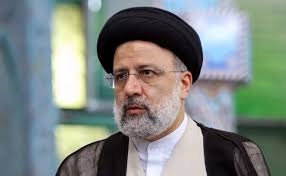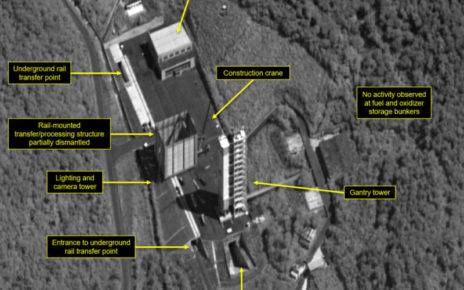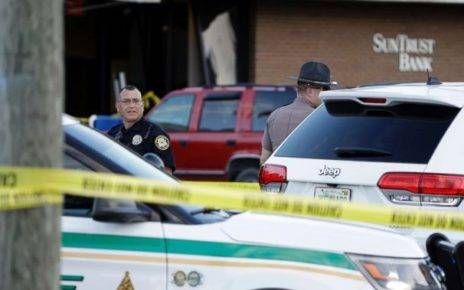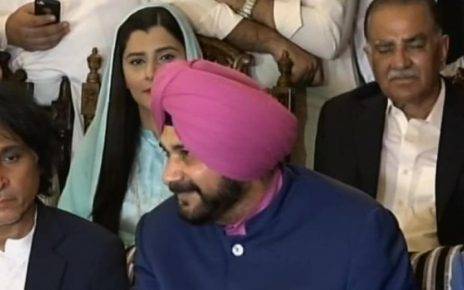The recent helicopter crash in northwestern Iran claimed the lives of President Ebrahim Raisi, Foreign Minister Hossein Amir-Abdollahian, and several other officials, shaking the nation. President Raisi, 63, was a significant figure in Iran’s political landscape, known for his hardline stance and close association with Supreme Leader Ayatollah Ali Khamenei.
Ebrahim Raisi first came into the spotlight as a young cleric involved in the mass executions of political prisoners in 1988. Despite losing the 2017 presidential election to Hassan Rouhani, Raisi’s political career was far from over. In 2021, he ascended to the presidency in an election marked by the disqualification of many major opposition candidates, a move widely seen as orchestrated by Khamenei to ensure Raisi’s victory.
During his presidency, Raisi’s administration grappled with the fallout from the U.S. withdrawal from the nuclear deal, leading to renewed tensions between Tehran and Washington. Although Raisi expressed a desire to rejoin the agreement, his government often pushed back against international inspections, partly due to suspected Israeli sabotage of Iran’s nuclear facilities.
Related: Understanding Mohammad Mokhber: Iran’s Next Leader
Domestically, Raisi’s tenure was marked by significant unrest. The death of Mahsa Amini while in police custody in 2022 sparked mass protests across Iran, resulting in a severe crackdown by security forces that left over 500 dead and thousands detained. The international community, including a United Nations panel, held Iran accountable for Amini’s death.
Raisi’s foreign policy stance was equally confrontational. His administration supported Iranian-backed militias targeting Israel and launched an unprecedented attack on Israel with hundreds of drones and missiles in 2023. This attack underscored the escalating shadow war between the two nations.
Beyond politics, Raisi managed the Imam Reza charity foundation, a powerful organization with vast business interests and significant influence in Iran’s economy. His role in the foundation, appointed by Khamenei, further solidified his position as a key player in Iran’s political and economic spheres.
Also Read: Israel Shuts Down Al Jazeera Offices, Citing National Security Concerns
Raisi’s sudden death leaves a void in Iran’s leadership at a time of internal and external challenges. He is survived by his wife and two daughters. His legacy, marked by hardline policies and a controversial human rights record, will undoubtedly shape Iran’s future as it navigates this tumultuous period.
Q&A
Q: What were some of the key events during Ebrahim Raisi’s presidency?
A: During Ebrahim Raisi’s presidency, Iran experienced significant domestic unrest, including mass protests following the death of Mahsa Amini while in police custody. Internationally, there was heightened tension with Israel, culminating in an unprecedented drone and missile attack launched by Iranian-backed militias.
Q: How did Ebrahim Raisi’s background shape his presidency?
A: Ebrahim Raisi’s background as a cleric and his association with Supreme Leader Ayatollah Ali Khamenei influenced his presidency significantly. His hardline stance on both domestic and foreign policy issues reflected his conservative religious beliefs and loyalty to the supreme leader.
Q: What impact did Ebrahim Raisi’s death have on Iran’s political landscape?
A: Ebrahim Raisi’s sudden death created a leadership vacuum in Iran, prompting questions about the country’s future direction. His absence leaves a void in the hardline faction of Iranian politics and raises uncertainty about the succession process and potential successors.
Q: How did the international community react to Ebrahim Raisi’s death?
A: The international community expressed condolences for Ebrahim Raisi’s death, with various countries and leaders acknowledging his role in Iranian politics. Some observers raised concerns about the implications of his passing for Iran’s relations with other countries and regional stability.
Q: What were some of the challenges faced by Ebrahim Raisi during his presidency?
A: Ebrahim Raisi faced numerous challenges during his presidency, including economic hardships exacerbated by international sanctions, internal dissent, and escalating tensions with the United States and its allies. Additionally, his administration grappled with human rights concerns and accusations of political repression.
Q: What is Ebrahim Raisi’s legacy in Iranian politics?
A: Ebrahim Raisi leaves behind a complex legacy in Iranian politics, characterized by his hardline stance, controversial human rights record, and close ties to Supreme Leader Ayatollah Ali Khamenei. While some supporters view him as a staunch defender of Iran’s interests, critics have accused him of authoritarianism and repression.
Q: How did Ebrahim Raisi’s presidency impact Iran’s relations with the international community?
A: Ebrahim Raisi’s presidency was marked by strained relations with the international community, particularly with the United States and its allies. His administration’s confrontational approach, coupled with Iran’s nuclear ambitions and support for proxy militias in the region, led to increased tensions and diplomatic challenges.
Q: What were some of the key policies implemented during Ebrahim Raisi’s tenure as president?
A: During his presidency, Ebrahim Raisi pursued policies aimed at asserting Iran’s regional influence and challenging perceived adversaries, particularly Israel and the United States. His administration also focused on economic self-reliance in the face of international sanctions and sought to bolster Iran’s military capabilities.
Q: How did Ebrahim Raisi’s background in the judiciary influence his approach to governance?
A: Ebrahim Raisi’s background as a former Iranian attorney general and head of the judiciary shaped his approach to governance, characterized by a strong emphasis on law and order, as well as a commitment to upholding conservative Islamic values. His tenure was marked by a crackdown on dissent and human rights abuses.
Q: What role did Ebrahim Raisi play in Iran’s nuclear program and negotiations with world powers?
A: Ebrahim Raisi’s presidency coincided with ongoing negotiations to revive the Iran nuclear deal, formally known as the Joint Comprehensive Plan of Action (JCPOA). While expressing a desire to rejoin the agreement, his administration took a more assertive stance, pushing back against international inspections and demanding concessions from the United States and its partners.
Also Read: Nepal Bans Everest and MDH Spices Over Safety Concerns
Q: How did Ebrahim Raisi’s sudden death impact Iran’s domestic politics and stability?
A: Ebrahim Raisi’s sudden death created uncertainty in Iran’s domestic politics, raising questions about succession and the future direction of the country. His absence leaves a void in the hardline faction of Iranian politics and could potentially lead to power struggles within the ruling establishment.
Discover more from Thenewsdoor
Subscribe to get the latest posts sent to your email.






One thought on “Ebrahim Raisi’s Legacy: From Cleric to President, a Life Cut Short”